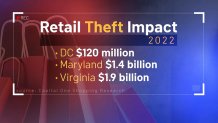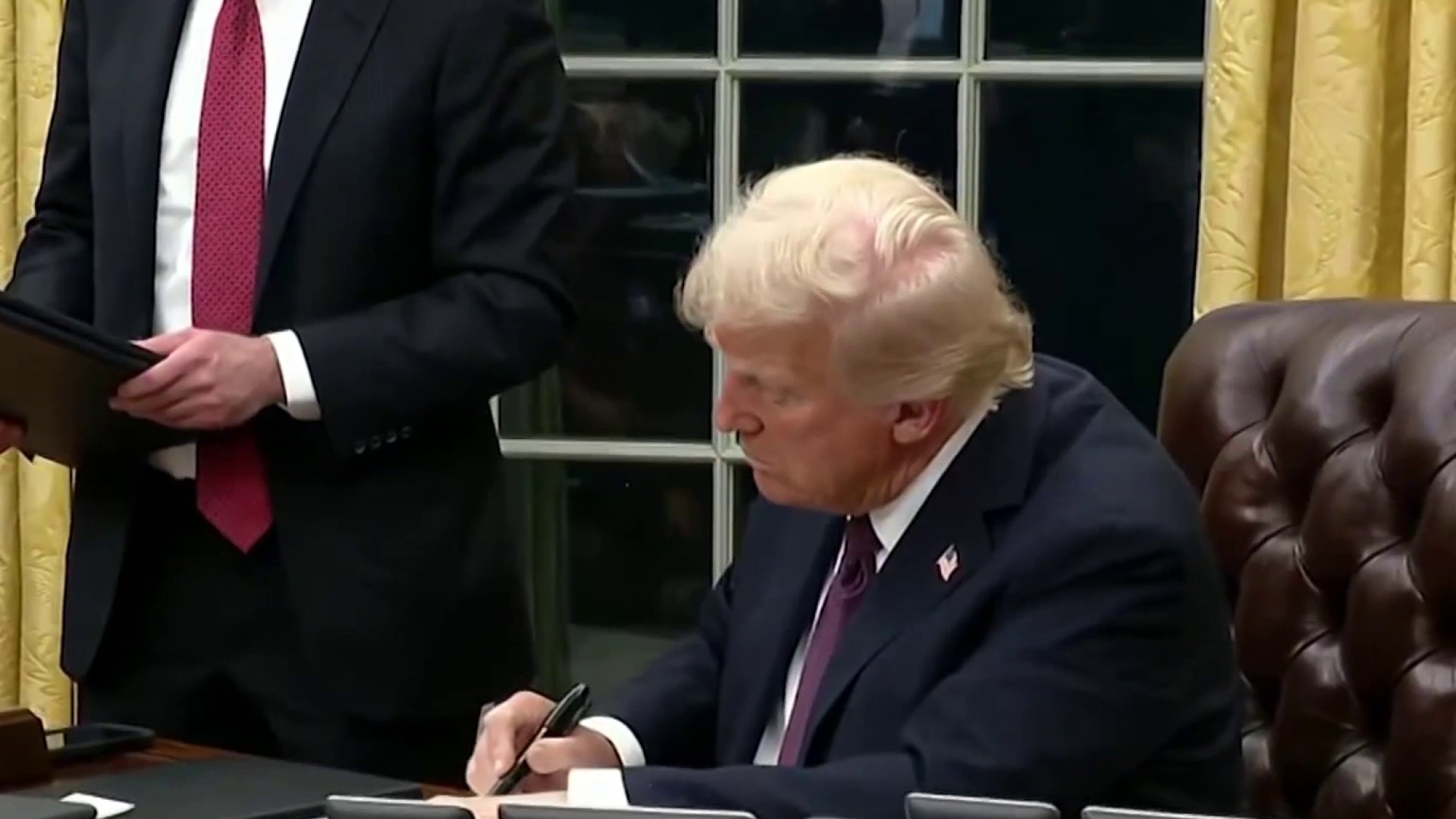During this busy shopping season, retailers are trying to combat the rising threat of retail theft, and that means extra eyes could be watching consumers when they’re out browsing.
A new report from the National Retail Federation said the industry had $112 billion in losses last year, mainly driven by shoplifting and retail theft.
Stream NBC4 newscasts for free right here, right now.
KJ Singh, owner of JJ Liquors in Northeast D.C., told the News4 I-Team dealing with shoplifting is a daily challenge.
“Between $30 to $50 worth of merchandise every day,” he said.
We have the news you need to know to start your day. Sign up for the First & 4Most morning newsletter — delivered to your inbox daily.
That daily loss each day adds up to thousands of dollars every year.
Despite more than a dozen security cameras peering down on just about every inch of the floor in his store, thieves are still able to walk out the door undetected, he said.
“An eye of a person cannot look at 16 cameras at once,” Singh said.

Software looks for suspicious activity by shoppers
Investigations
Investigations by the News4 I-Team
Human eyes might not be able to, but he's counting on something else that could. Singh recently added a new level of high-tech security — artificial intelligence software developed by French company Veesion that plugs right into his 16 cameras.
The program looks for suspicious body activity from shoppers and records in real time, Veesion Sales Manager Pablo Blanco Poveda said.
“Every time someone takes an item from the store, if they put it inside the pocket, inside the trousers, inside the jacket, we send an alert so you can see that before they leave,” he said.
The News4 I-Team saw firsthand how it works with a producer agreeing to play the thief. Less than 30 seconds after he snatched a bottle of wine and put it in his coat, Singh got an alert on his phone. The message read “very suspicious activity” and provided a video clip of the producer caught in the act.
“You have the proof. So, when you go to stop someone, you are not going to do like, ‘Open your bag.’ No. You have proof; you show the video,” Poveda said.
According to Veesion, more than 350 stores in the U.S. are using the system. More than 30 are here in D.C., mostly smaller retailers.
But larger retailers also are beginning to incorporate AI to nab shoplifters.
“These are some really effective tools that can layer in on top of existing camera systems, existing camera technologies,” explained Khris Hamlin, with the Retail Industry Leaders Association, a trade association for major retail giants like Macy’s Target and Walmart.
According to the National Retail Federation survey, more than one third of respondents — 37% — said they're researching technologies, including AI.
AI is not enough of a deterrent
While technology offers one layer of deterrent, it’s not enough, Hamlin said. Recently, the association launched the first of its kind national partnership to combat retail crime, bringing together leading retailers, law enforcement and district attorneys’ offices.
“Now you have this collaboration of different resources to be able to say, ‘How do we deal with this? How do we send that habitual offender to the correct side?’ Or, ‘How do we have a diversion program that gets it to a social service entity?’” explained Hamlin.
While a lot of business owners choose not to share their security measures, Singh wants everyone who shops in his store to know AI has an eye on them.
“We don’t need any trouble if you just don’t steal,” he said. “As long as customers know there’s somebody watching over them, they would never steal.”
Singh said since installing the technology, he’s confronted a number of shoplifters and was shocked to see some of them were his regulars.
“They were very surprised that they’ve been coming here for so long and nothing had really happened because we never bothered to look at them because they were regulars,” he said.
Reported by Susan Hogan, produced by Rick Yarborough, shot by Steve Jones and edited by Lance Ing.



